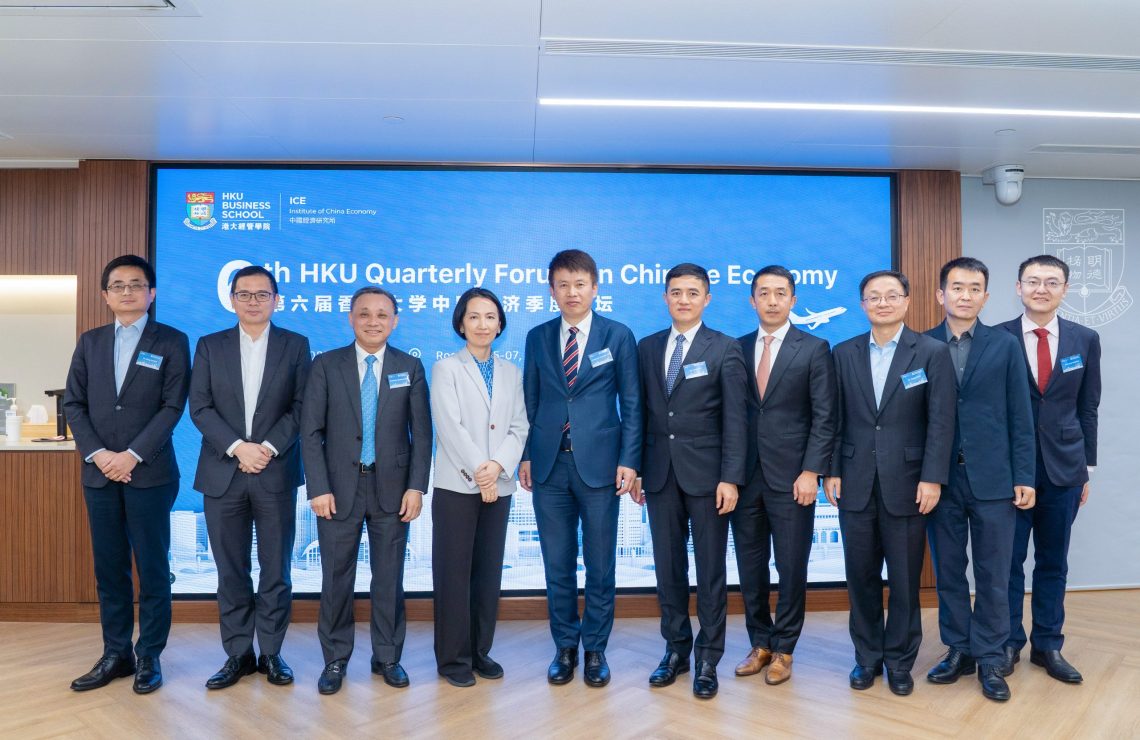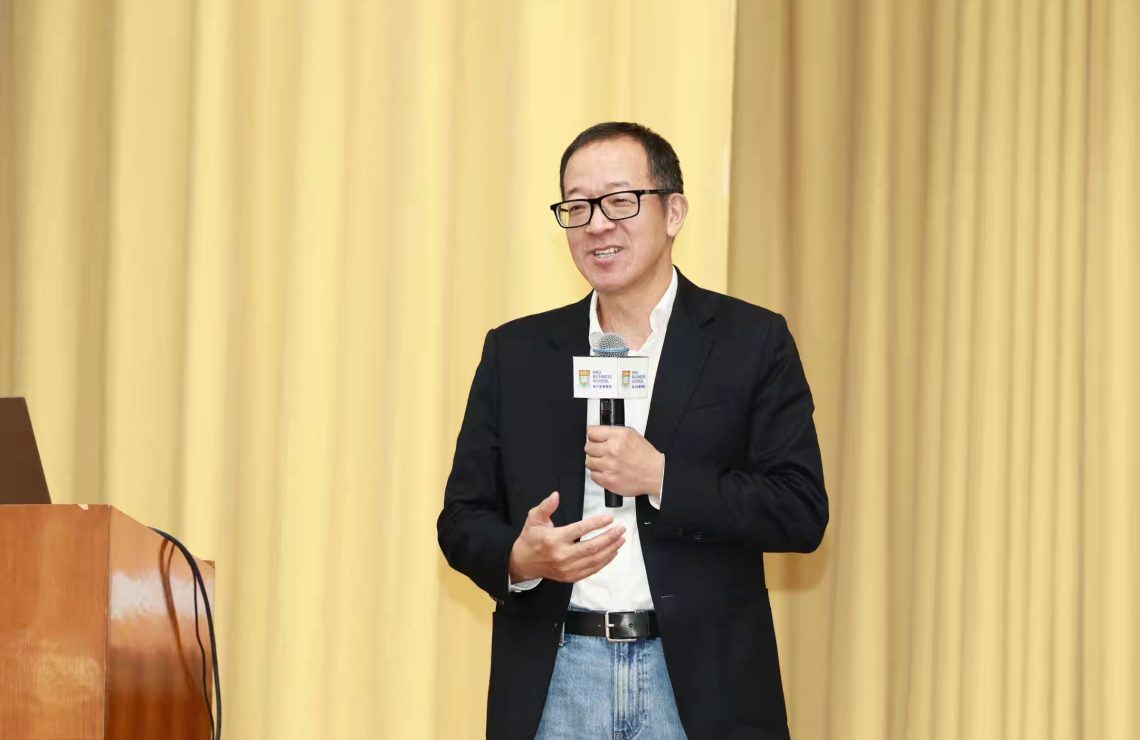HKU Business School and UNCTAD Co-organised HKU iCube Impact Series: Challenges and Opportunities of the Global Economy Development
HKU Business School hosted the HKU iCube Impact Series today and invited Mr Richard Kozul-Wright, Director of the Division on Globalisation and Development Strategies, United Nations Conference on Trade and Development (UNCTAD) as the keynote speaker to examine the United Nations’ Trade and Development Report 2023, and explore the challenges and opportunities of the global economy development. The event, co-organised by HKU iCube, UNCTAD, Asia Global Institute and HKU Business School’s Institute of China Economy, was attended by a diverse audience of business leaders, academics, alumni and students.
World economic growth is projected to slow from 3% in 2022 to 2.4% in 2023 with few signs of a rebound next year. Institutional reforms of the global financial architecture, more pragmatic policies to tackle inflation, inequality and sovereign debt as well as stronger oversight of key markets are needed. The global economy is at a crossroads, where divergent growth paths, widening inequalities, growing market concentration and mounting debt burdens cast shadows on its future. The Trade and Development Report 2023 spotlights these pressing issues and underscores the urgency of addressing them.
Professor Heiwai Tang, Associate Dean (External Relations) of HKU Business School and Director of Asia Global Institute, said in the welcoming remarks, “Reflecting on the past decade or two, people around the world only talked about business, particularly in this region, but politics is in everyone’s mind today. The developments in the Middle East and Europe obviously have impact on our daily lives, business operations and other aspects. Following three years of the pandemic, the path to recovery has been challenging and slow. The restructuring of supply chains and the ongoing conflicts among major nations have led to a more regionalised approach to trade. It becomes crucial to find ways to sustain the globalisation process, to allow developing countries catching up with developed ones and to narrow the income gaps between the rich and poor. All these should be high up on the global agenda.”
Mr Richard Kozul-Wright, Director of the Division on Globalisation and Development Strategies, UNCTAD said in his keynote speech, “This year’s Trade and Development Report highlights the continuing fragility of the global economy. We want to see a much more balanced mix of policies to set the global economy back on a growth path, particularly in the advanced economies. We can’t simply rely on monetary policy to do the job of recovery… despite all the talk during COVID-19 that we couldn’t go back to business as usual, we are seeing too much of business as usual as we face a set of cascading crises – economic, environmental, climate, food insecurity – that need a different way of meeting the challenges that face developing countries, and are increasingly affecting advanced economies too.”
HKU Business School also organised a panel discussion on the topic of “Growth, Debt and Climate: Realigning the Global Financial Architecture”, moderated by Professor Heiwai Tang. Panellists include Mr Richard Kozul-Wright and Ms Helen Dai, Tanoto Foundation AsiaGlobal Fellow, Senior Global Engagement Manager (Health Sector), Australian Trade and Investment Commission. Panellists discussed the potential of Southeast Asian region in technological development and economic growth. They considered a restructuring of the global financial architecture is required to extend reliable long-term finance opportunities and ensure a stable financial environment.
The HKU iCube Impact Series has held more than ten lectures and workshops since 2022, inviting top speakers from different sectors to share insights with guests on hot social topics, including the economic development of China and Hong Kong, leadership, and culture and art, etc.
Photographs of the forum:
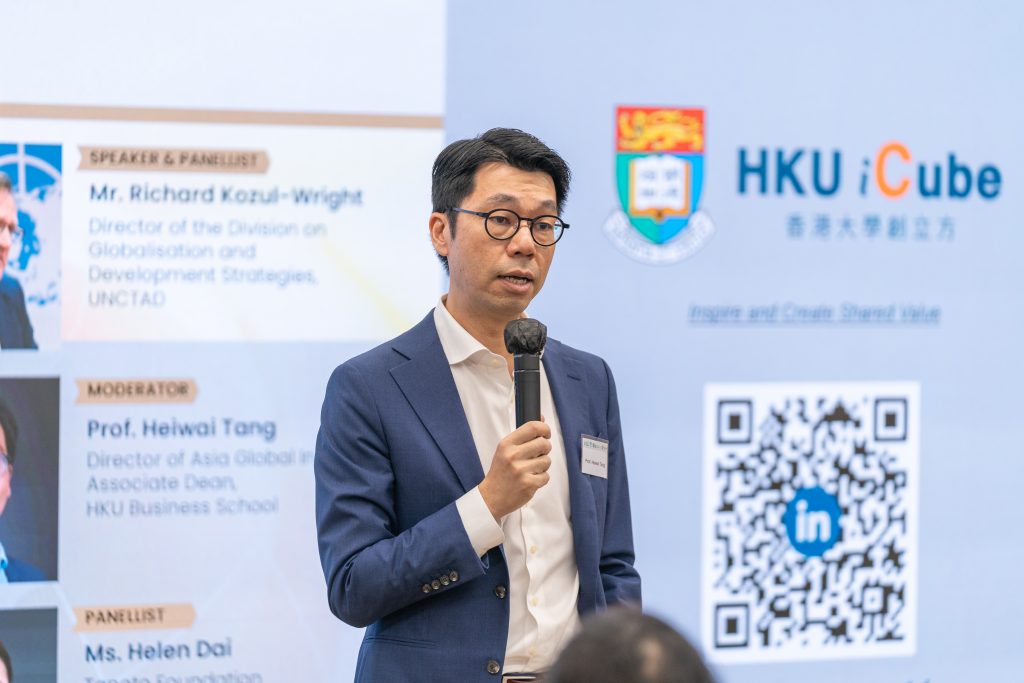
Professor Heiwai Tang, Associate Dean (External Relations) of HKU Business School and Director of Asia Global Institute delivers the welcoming remarks.
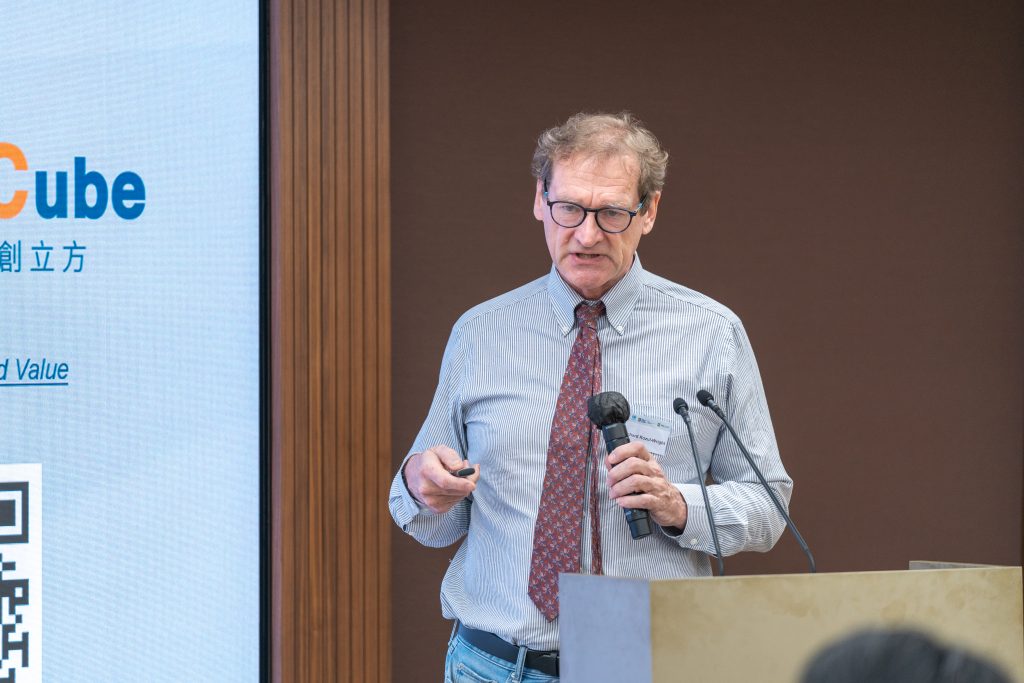
Mr Richard Kozul-Wright, Director of the Division on Globalisation and Development Strategies, UNCTAD delivers the keynote speech.
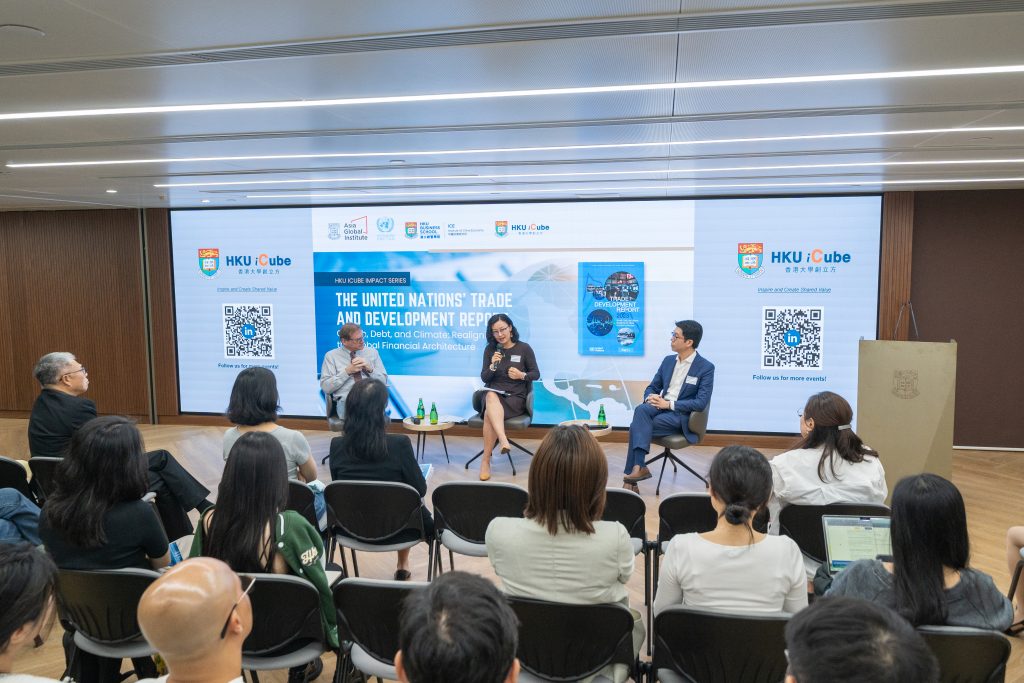
(From right) Professor Heiwai Tang, Ms Helen Dai, Tanoto Foundation AsiaGlobal Fellow, Senior Global Engagement Manager (Health Sector), Australian Trade and Investment Commission and Mr Richard Kozul-Wright exchange their views during the panel discussion.
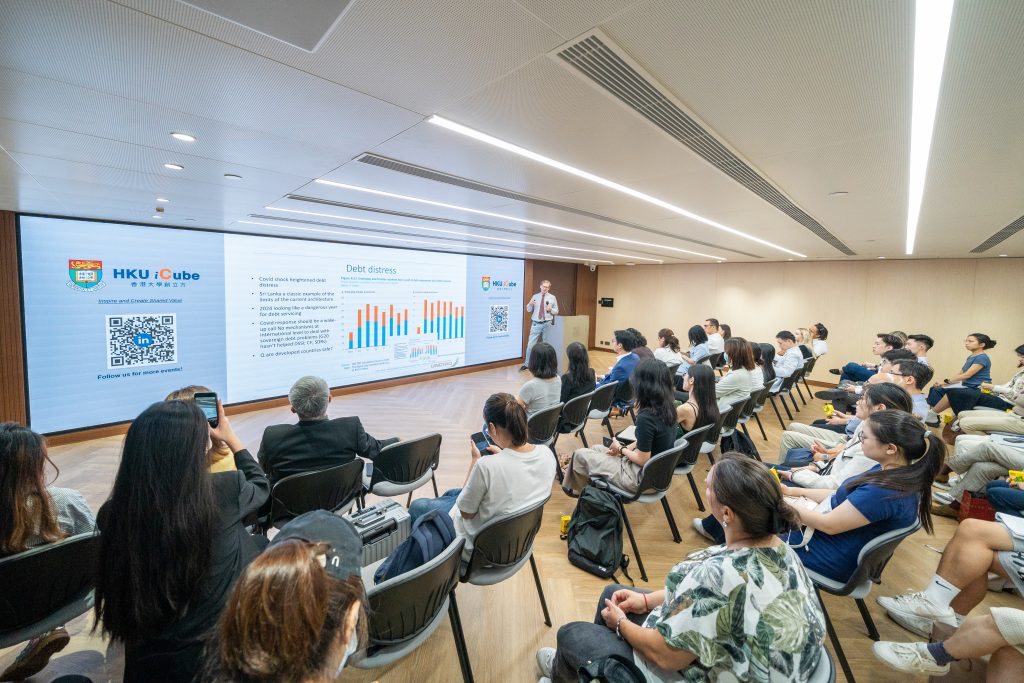
The event, held at HKU iCube, attracts a diverse audience of business leaders, academics, alumni and students
Hi-res photos are available here.
* To review press release and full report of the Trade and Development Report 2023.






